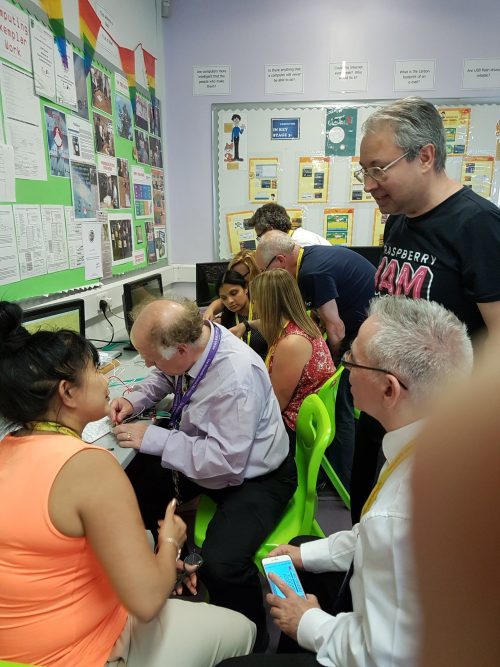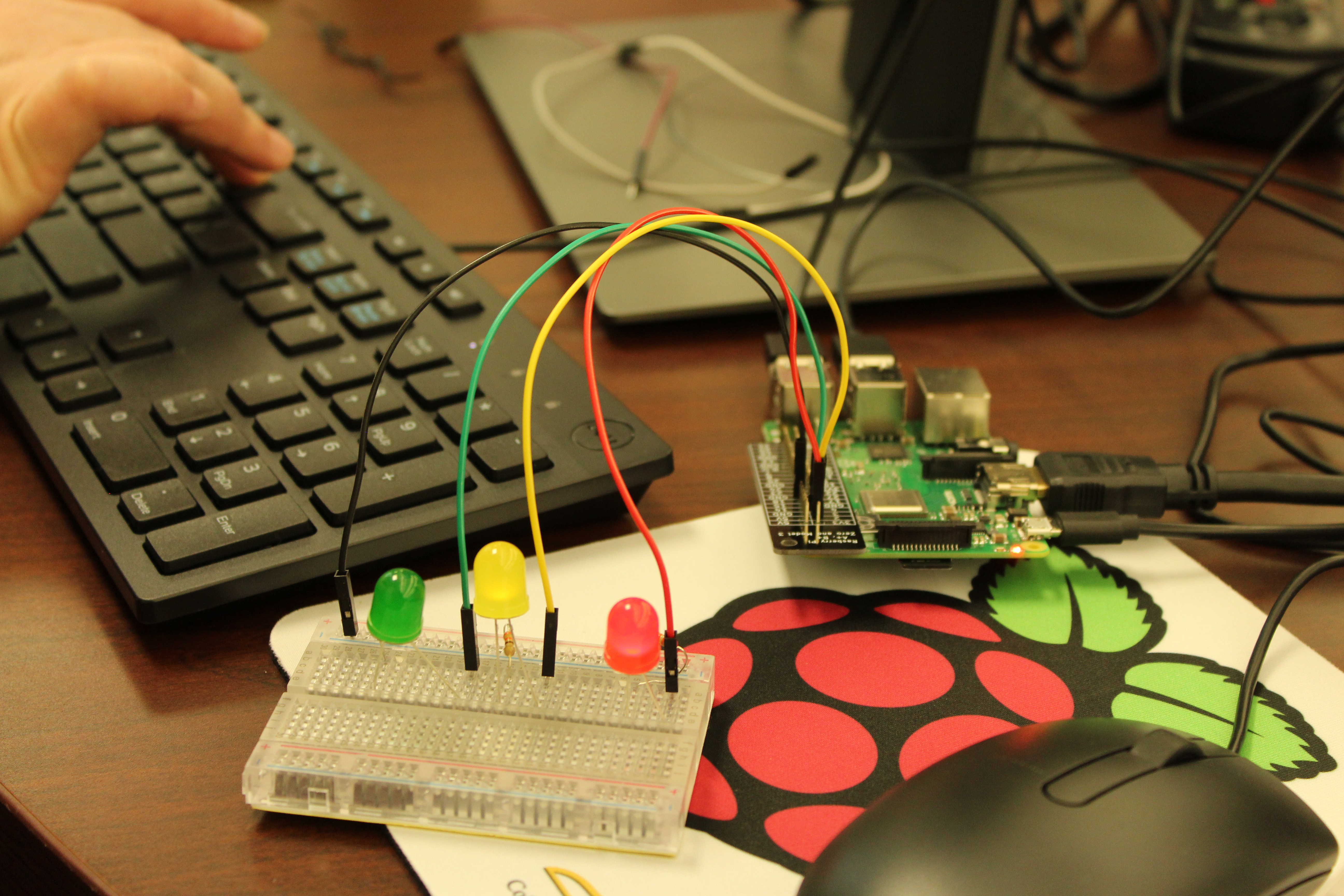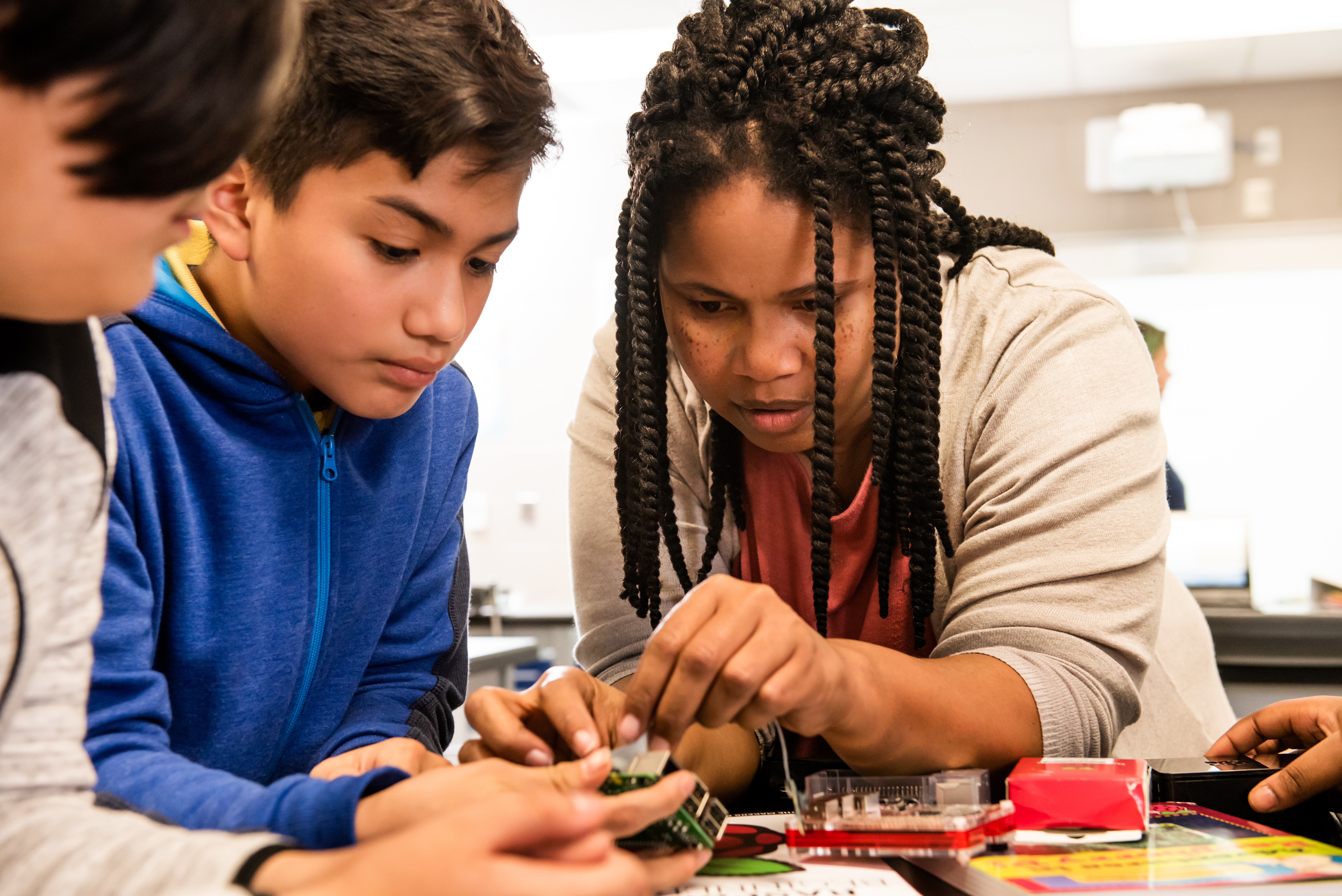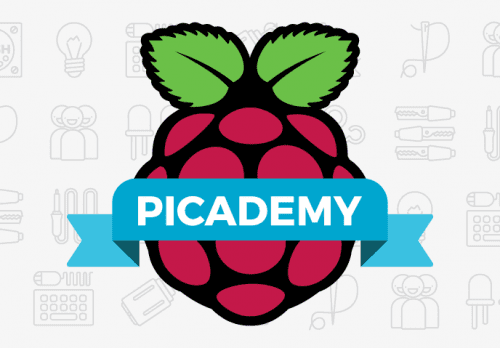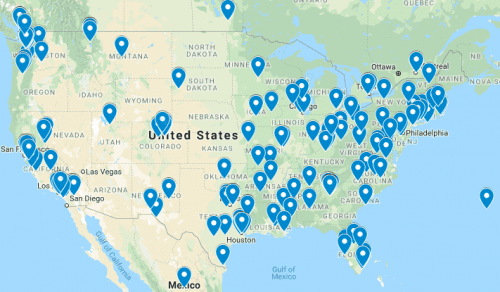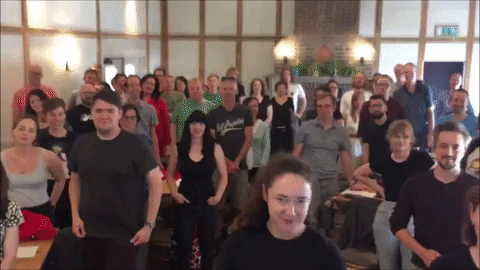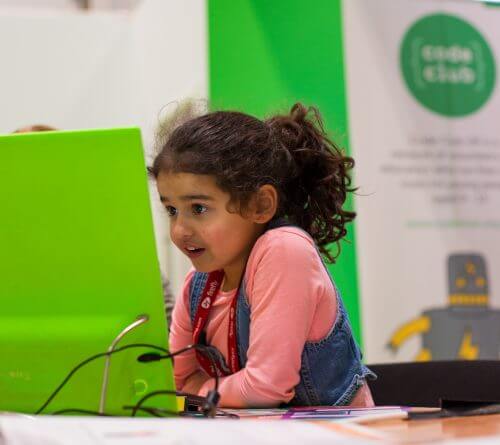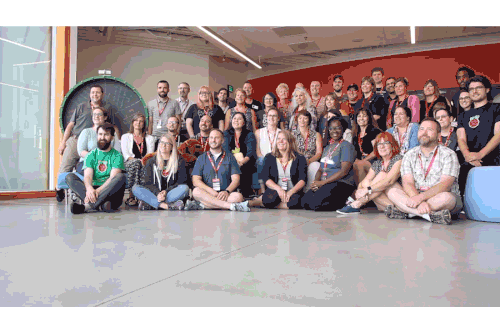Schlagwort: Picademy
-

Picademy Bytes: free physical computing training for teachers
Reading Time: 2 minutesFive years ago, the Raspberry Pi Foundation recognised a need for free, high-quality CPD for educators. In response, we started running Picademy, a two-day training event that provides educators all over the UK and North America with the knowledge and skills they need to teach computing with confidence, creativity, and excitement. We…
-

An opportunity to reach thousands with the Raspberry Pi
Reading Time: 4 minutesDr Bob Brown is a former professor who taught at Kennesaw State University and Southern Polytechnic State University. He holds a doctorate in computer information systems. Bob is also a Raspberry Pi Certified Educator, and continues to provide exceptional classroom experiences for K-12 students. The moment his students have that “Aha!” feeling…
-

Possibilities of the Raspberry Pi — from Code Club to Coolest Projects USA
Reading Time: 3 minutesYolanda Payne is a veteran teacher and Raspberry Pi Certified Educator. After discovering a love for computers at an early age (through RadioShack Tandy), Yolanda pursued degrees in Instructional/Educational Technology at Mississippi State University, the University of Florida, and the University of Georgia. She has worked as an instructional designer, webmaster, and…
-

New Picademy North America dates for 2019
Reading Time: 2 minutesHooray, Picademy is back! We’re excited to bring our free computer science and digital making professional development program for educators to three new cities this summer: Picademy 2019 dates We’re thrilled to kick off our 2019 season, partnering with three new venues: we’ll be at Computer History Museum in the Bay Area…
-

Staff Picademy and the sacrificial Babbage
Reading Time: 3 minutesRefill the coffee machine, unpack the sacrificial Babbages, and refresh the micro SD cards — it’s staff Picademy time! Staff Picademy Once a year, when one of our all-staff meeting brings together members of the Raspberry Pi team from across the globe, we host staff Picademy at our office. It’s two days of…
-

Picademy North America 2018: That’s a Wrap!
Reading Time: 3 minutesHooray! We’re celebrating our third season leading educator training in North America. That’s 20 Picademy workshops in 11 cities with 791 happy teachers graduating as Raspberry Pi Certified Educators. This summer was particularly rich with successes, challenges, and lessons learned — let’s take a closer look: Andrew Collins on Twitter That’s a…
-

Celebrating our teachers
Reading Time: 5 minutesThe end of the academic year is here, and we are marking the occasion by celebrating teachers from all over the world. For those about to teach, we salute you. Since last September, we’ve run a whole host of programmes that teachers have been involved in. From training with us at Picademy…
-

Puerto Rico’s First Raspberry Pi Educator Workshop
Reading Time: 3 minutesEarlier this spring, an excited group of STEM educators came together to participate in the first ever Raspberry Pi and Arduino workshop in Puerto Rico. Their three-day digital making adventure was led by MakerTechPR’s José Rullán and Raspberry Pi Certified Educator Alex Martínez. They ran the event as part of the Robot…
-

Tackling climate change and helping the community
Reading Time: 3 minutesIn today’s guest post, seventh-grade students Evan Callas, Will Ross, Tyler Fallon, and Kyle Fugate share their story of using the Raspberry Pi Oracle Weather Station in their Innovation Lab class, headed by Raspberry Pi Certified Educator Chris Aviles. United Nations Sustainable Goals The past couple of weeks in our Innovation Lab…
-

Four days of STEAM at Bett 2018
Reading Time: 3 minutesIf you’re an educator from the UK, chances are you’ve heard of Bett. For everyone else: Bett stands for British Education Technology Tradeshow. It’s the El Dorado of edtech, where every street is adorned with interactive whiteboards, VR headsets, and new technologies for the classroom. Every year since 2014, the Raspberry Pi…
-

2018 Picademy dates in the United States
Reading Time: 3 minutesCue the lights! Cue the music! Picademy is back for another year stateside. We’re excited to bring our free computer science and digital making professional development program for educators to four new cities this summer — you can apply right now. We’re thrilled to kick off our 2018 season! Before we get…
